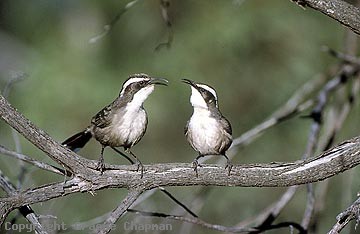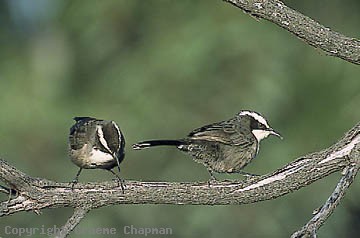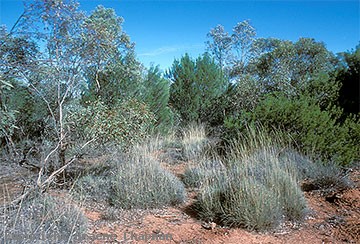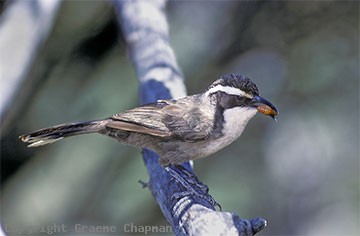Australian Birds
White-browed Babbler
Pomatostomus superciliosus
(Viewing 4 of 9 photos)
|

All four species of babbler in Australia are communal - that is they live in family groups which start off as an adult pair - their offspring remain with the family and help with domestic chores such as building nests, feeding more nestlings and in the case of some larger groups, they may when adult, eventually nest themselves. How long they take to become adult is not known but it could be up to four years. The ranges of White-browed and Hall's Babblers are largely mutually exclusive (known as allopatric) - otherwise there is a fair bit of overlap in distribution of our babblers but they all have quite distinct habitat preferences and this tends to keep them apart and reduce competition. White-browed are the smallest of the group and except for the more humid coastal regions, occur right across southern Australia up to about the Tropic of Capricorn. They like bushy places, that is areas of low shrubby vegetation, sometimes even devoid of trees. They forage mostly on the ground and their nests are usually well hidden in dense foliage only two or three metres up. When territorial defence is necessary, the main adult pair play a leading role, proclaiming their ownership with a loud duet. (see pic #445001 and listen on sound page). See under Hall's Babbler for a comparison between the two species.
|

445001 ... White-browed Babbler. |

445002 ... White-browed Babbler |
 |

445204 ... White-browed Babblers like dense, shrubby habitat like this mallee in western NSW. |

445205 ... White-browed Babbler approaching nest. |
 |
Previous 1 2 3 Next
Return to Photo Library page









